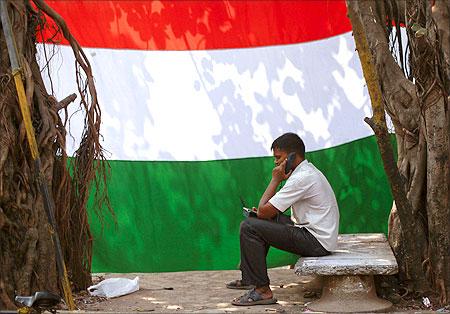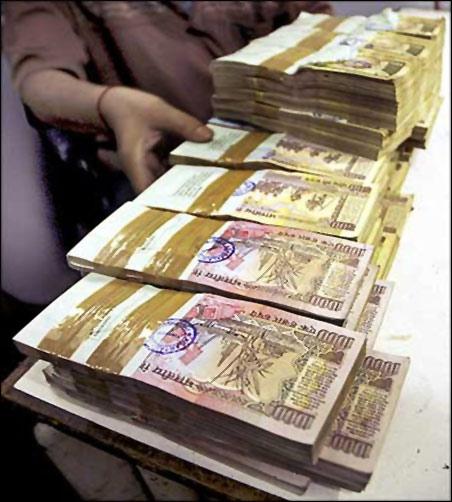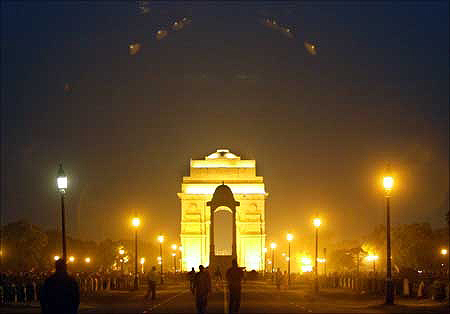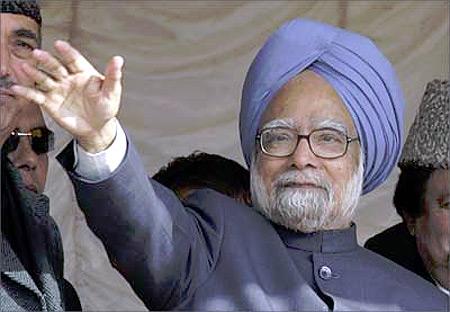 | « Back to article | Print this article |
Why UPA will be slow to reforms even now
The paralysis of UPA-II is a product of underlying circumstances, and of a pusillanimity that extends beyond individuals.
On Tuesday, Pranab Mukherjee resigned as finance minister in order to stand as the ruling United Progressive Alliance's candidate for the post of president.
It is expected that the finance ministry will be handled for some time by Prime Minister Manmohan Singh.
This has given rise to expectations that pending reform will be speeded up, and the problematic recent drift towards control and confusion in policy making reversed.
Yet it is difficult to see how the change of responsibilities alone will make a difference.
Much reform has been held up not because of Mr Mukherjee, but because of opposition within the ruling alliance, the UPA government's lack of internal co-ordination, and the Congress party's inability to reach out to the Opposition in Parliament.
Click NEXT to read further. . .
Why UPA will be slow to reforms even now
Examining the list of the 10 most desirable and likely reforms, for example, provides a reality check on any misplaced expectation.
The most urgent is correction of the administered pricing mechanism for petroleum-based products like diesel, kerosene and cooking gas.
The protests following the hike in the price of petrol mean that the UPA will probably not be bold enough politically to make any changes to the far more fiscally problematic diesel and LPG subsidies.
Also urgent is reform of the energy sector -- power, coal and gas. Energy shortfalls have become endemic.
Click NEXT to read further. . .
Why UPA will be slow to reforms even now
Yet gas supply is being held hostage by contract disputes, and coal by Coal India's inefficiency; neither of which can be corrected overnight.
Reform of tax administration -- through the direct taxes code and the goods and services tax -- has suffered because of endless tinkering with the DTC and states' objections to the GST.
Even if the DTC is passed, its current diluted version means few gains can be expected from it; in any case, general anti-avoidance rules have been put on the back burner.
Nor can states' objections to the GST be overruled, since a constitutional amendment will eventually be required.
Then there is infrastructure, which the prime minister has already tried to push.
Click NEXT to read further. . .
Why UPA will be slow to reforms even now
But judging from the recent meeting on the subject, organised by the Prime Minister's Office, the emphasis is on announcing projects rather than on implementing them -- again, a reason for lowering expectations of swift change.
On the longer-term reform, the most important is on land acquisition.
India's polity continues to be divided on the subject, and it is far from certain the government will wish to test its strength over the land acquisition Bill.
The introduction of the Unique ID system as a backbone for welfare and tax payments, too, has been often promised as a game-changer; but the prime minister has already shown himself unable to push UPA-II's pet project through over objections from other ministries.
Click NEXT to read further. . .
Why UPA will be slow to reforms even now
The only two reforms, in fact, where movement can be expected are the passage of mining regulation legislation, which would help clean up that problematic section and perhaps in reining in the revenue authorities -- possibly through some sort of settlement of the high-profile Vodafone tax dispute.
In short, the paralysis of UPA-II is a product of underlying circumstances, and of a pusillanimity that extends beyond individuals.
Expecting a drastic change would be futile.





